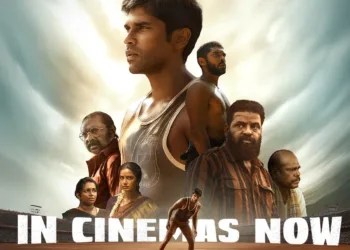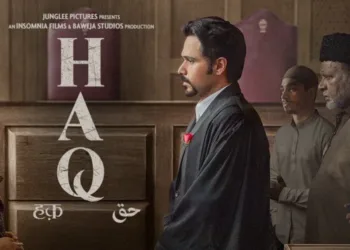The All India Football Federation will make a pivotal appearance before the Supreme Court on Monday, August 18, 2025, in a bid to address the mounting hardships facing Indian football. Under pressure from eleven ISL clubs, the AIFF plans to orally present its case while filing a separate affidavit on the National Sports Bill, marking a decisive moment in one of the sport’s most pressing crises.
Table of Contents
The Constitutional Deadlock Paralyzing Indian Football
At the heart of the current crisis lies a Supreme Court directive that has effectively frozen Indian football operations. The Supreme Court’s oral observation – no major decisions until the new AIFF constitution is finalised – has left the federation unable to act on crucial matters, most notably the renewal of the Master Rights Agreement (MRA) with Football Sports Development Limited (FSDL).

This constitutional impasse has created a domino effect across Indian football. With the MRA between AIFF and FSDL expiring in December 2025, renewal talks have stalled, and FSDL has stepped back from committing to a new season. The organization that runs the ISL announced in July that it has put the 2025-26 season “on hold” due to legal uncertainties, leaving thousands of livelihoods in limbo.
ISL Clubs’ Coordinated Pressure Campaign
The AIFF’s decision to approach the Supreme Court comes after sustained pressure from ISL clubs, who initially expressed their concerns through joint letters before threatening independent legal action. Eleven ISL clubs issued a joint statement on August 8, advising the federation to approach the Supreme Court to expedite matters, making it clear that if AIFF decided not to approach the apex court, the clubs would take the initiative themselves.
The clubs’ urgency stems from the immediate impact on their operations. Multiple clubs have already suspended first-team operations and put salaries on hold. Bengaluru FC, Odisha FC, and Chennaiyin FC have announced temporary suspensions of operations for their first-team players and staff, citing ongoing uncertainty over the league’s future.
To support the mention, clubs have been asked to submit a short letter listing concrete hardships and any urgent points by Friday evening, August 15, 2025, providing the Supreme Court with comprehensive evidence of the crisis’s impact.
The National Sports Bill Dimension
In a separate but related development, the AIFF will file an independent affidavit to inform the Court about the passage of the National Sports Bill and its implications. This filing is independent of the clubs, who will not be involved, according to sources tracking the development.

The National Sports Governance Bill, 2025, introduces significant changes to Indian sports administration, including the establishment of National Olympic Committee, National Paralympic Committee, and National and Regional Sports Federations for each designated sport. The bill also provides for a National Sports Governance Tribunal with powers of a civil court, which could have implications for ongoing disputes in Indian football.
Timeline of the Crisis: From Negotiations to Deadlock
| Date | Event | Impact |
|---|---|---|
| November 21, 2024 | AIFF initiates MRA renewal process with FSDL | Initial negotiations begin |
| February 5, 2025 | First formal meeting in New Delhi | Discussions on renewal terms |
| March 5, 2025 | Mumbai meeting and FSDL proposal | Counter-proposal framework established |
| April 21, 2025 | AIFF submits counter-proposal | Negotiations progress |
| July 11, 2025 | FSDL puts ISL 2025-26 on hold | Crisis escalates |
| August 7, 2025 | AIFF meets with ISL clubs | Collective response planned |
| August 8, 2025 | Eleven clubs issue joint statement | Supreme Court approach demanded |
| August 15, 2025 | Clubs submit hardship letters | Evidence compilation |
| August 18, 2025 | AIFF approaches Supreme Court | Critical intervention |
FIFPRO’s International Intervention
The crisis has attracted international attention, with FIFPRO, the global players’ union, writing to FIFA calling the situation “alarming” and flagging reports of contracts being suspended “until further notice.” The letter urges FIFA to help stabilise the league and safeguard players’ livelihoods, highlighting the international implications of India’s domestic football crisis.
This international pressure adds another dimension to the urgency facing the AIFF and Supreme Court, as India’s reputation in global football governance hangs in the balance.
Economic Impact on the Football Ecosystem
The suspension of ISL operations has created a cascading economic crisis throughout Indian football. The hardships extend far beyond player salaries to encompass:
Immediate Financial Impact:
- Player and coaching staff salary suspensions
- Academy operations halted
- Youth development programs discontinued
- Commercial contract uncertainties
- Sponsorship deal complications
Long-term Structural Damage:
- Talent pipeline disruption
- National team preparation compromised
- International reputation damage
- Investor confidence erosion
- Grassroots football impact

Current ISL Club Status and Operations
| Club | Operational Status | Specific Actions |
|---|---|---|
| Bengaluru FC | Suspended | First-team salary suspension |
| Chennaiyin FC | Suspended | Complete operations halt |
| Odisha FC | Suspended | Staff salary suspension |
| Other 8 Clubs | Uncertain | Awaiting clarity |
| Mohun Bagan SG | Unclear | Did not sign joint letter |
| East Bengal | Unclear | Did not sign joint letter |
Legal Strategy and Expected Outcomes
If the Supreme Court bench permits after the oral mention, AIFF’s legal team will immediately file an application seeking directions to resume talks and lift the informal freeze that has stalled planning. This represents a carefully coordinated legal strategy designed to unlock the deadlock without undermining the ongoing constitutional case.
The clubs’ decision to support rather than independently approach the court demonstrates their recognition that AIFF’s position as a main respondent in the constitutional case provides the most effective route for judicial intervention.
The Broader Implications for Indian Sports Governance
This crisis has exposed fundamental weaknesses in Indian sports governance structures. The intersection of constitutional reform, commercial agreements, and operational necessities has created a perfect storm that threatens to derail India’s most prominent football competition.
The Supreme Court’s eventual response could establish important precedents for how constitutional reforms in sports federations should be balanced against operational continuity and stakeholder welfare.
Player and Staff Welfare Concerns
Beyond the legal and commercial complexities, the human cost of this crisis continues to mount. Hundreds of players, coaches, and support staff face uncertain futures as the football calendar remains in limbo. The impact extends to:
- Professional Players: Career planning disrupted, fitness concerns
- Youth Players: Development pathway uncertainty
- Coaching Staff: Employment security compromised
- Support Personnel: Livelihoods directly threatened
- Academy Students: Educational and sporting progression affected
Government and Regulatory Response
The government’s role in resolving this crisis remains crucial, particularly given the recent passage of the National Sports Bill. The AIFF’s separate affidavit on this legislation suggests potential alignment between the new regulatory framework and the resolution of current disputes.

However, the relationship between the new bill’s provisions and existing Supreme Court proceedings regarding AIFF’s constitution requires careful legal navigation.
Commercial and Sponsorship Ramifications
The uncertainty surrounding the ISL has broader commercial implications for Indian football. Existing sponsorship agreements face potential complications, while future commercial partnerships remain on hold pending resolution of the governance crisis.
The reputation damage extends beyond immediate financial losses to encompass long-term investor confidence in Indian football as a stable commercial environment.
Read More: Manchester United Agree Season-Long Toby Collyer Loan to West Bromwich Albion
FAQs
What will AIFF present before the Supreme Court on Monday, August 18?
AIFF’s counsel will orally mention the hardships facing the football ecosystem, supported by letters from ISL clubs detailing concrete hardships and urgent points. They will also file a separate affidavit regarding the National Sports Bill’s passage and implications.
Why can’t AIFF renew the Master Rights Agreement with FSDL?
The Supreme Court has directed AIFF not to make major decisions until its new constitution is finalized. This has prevented AIFF from negotiating the MRA renewal with FSDL, whose current agreement expires in December 2025.
How many ISL clubs are supporting AIFF’s Supreme Court approach?
Eleven out of thirteen ISL clubs have joined the initiative, with Mohun Bagan Super Giant and East Bengal notably not signing the joint letter requesting AIFF to approach the Supreme Court.
What is the current status of ISL 2025-26 season?
FSDL has put the ISL 2025-26 season “on hold” due to legal uncertainties around MRA renewal. Multiple clubs have suspended operations and player salaries, while the league’s start remains uncertain.
What role is FIFPRO playing in this crisis?
FIFPRO, the global players’ union, has written to FIFA calling the situation “alarming” and urging intervention to help stabilize the league and safeguard players’ livelihoods, bringing international attention to India’s football crisis.








